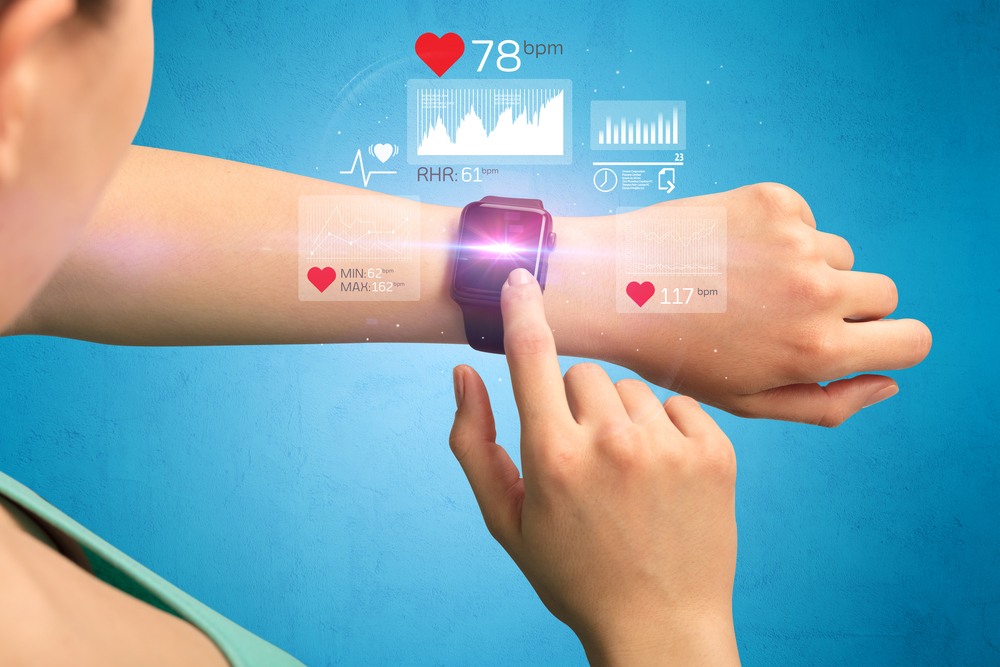Top Health Wearables to Monitor Your Well-Being
Table of contents

The Rise of Health Wearables in Modern Lifestyle
In recent years, health wearables have become an integral part of personal wellness routines. These devices, which range from smartwatches to fitness trackers, are designed to track various health metrics such as heart rate, steps, and sleep patterns. The integration of technology in health and fitness has revolutionized how we approach well-being, offering a convenient and precise way to monitor our health indicators.
Health wearables are more than just gadgets; they provide real-time data that empowers individuals to make informed decisions about their lifestyle choices. With the ability to sync with smartphones and other devices, users can set goals, track progress, and even receive personalized health insights. As technology advances, the variety and accuracy of these wearables continue to grow, making them indispensable tools for anyone looking to maintain or improve their health.
The market for health wearables has expanded significantly, with numerous brands offering diverse options to cater to different needs. From Apple’s sophisticated smartwatches to Fitbit’s user-friendly fitness trackers, there’s a device for everyone. These wearables not only help track physical activity but also offer functions like guided breathing exercises and mindfulness tips to enhance mental health.
Incorporating health wearables into daily life can significantly improve one’s well-being. They serve as constant reminders to stay active, hydrated, and mindful of one’s health. As we become more health-conscious, the demand for these wearables is expected to continue rising, making them a staple in modern wellness regimens.
Key Features to Look for in Health Wearables
When selecting health wearables, it’s important to consider the key features that will best support your wellness goals. One crucial aspect is the ability to monitor heart rate, which is essential for understanding cardiovascular health and optimizing workouts. Devices like the Garmin Forerunner offer advanced heart rate monitoring, making it a popular choice among fitness enthusiasts.
Another important feature is sleep tracking. Proper sleep is vital for overall well-being, and wearables with sophisticated sleep monitoring can provide insights into sleep quality and patterns. Devices such as the Oura Ring excel in this area, offering comprehensive sleep analysis to help users improve their rest.
Activity tracking is another central feature of health wearables. Whether you’re running, cycling, or engaging in other physical activities, having a device that accurately tracks your movements and calories burned can be highly motivating. Fitbit Charge stands out in this category, providing detailed activity logs and encouraging users to set and achieve fitness goals.
Lastly, consider devices offering stress management tools. In today’s fast-paced world, managing stress is as important as physical fitness. Wearables that include guided breathing exercises, like those found in the Apple Watch, can be invaluable for maintaining mental and emotional balance.
Popular Health Wearables and Their Benefits
Several health wearables have carved out a niche in the market, each offering unique benefits. The Apple Watch, for instance, is renowned for its comprehensive health tracking capabilities and seamless integration with Apple’s ecosystem. It’s ideal for users seeking a device that combines style with functionality.
Fitbit, another leader in the wearable industry, offers a range of products tailored to different fitness levels. Its devices are known for user-friendly interfaces and excellent battery life, making them perfect for both beginners and seasoned athletes. The Fitbit Versa, in particular, offers a balanced mix of features that cater to various health monitoring needs.
For those with an active lifestyle, the Garmin Vivosmart provides advanced metrics for a variety of sports, along with a robust build to withstand rigorous activities. Its GPS tracking and water resistance make it a favorite among outdoor enthusiasts.
On the other hand, the Oura Ring provides a more discreet option for health tracking. It fits comfortably on your finger, offering detailed sleep analysis and readiness scores, which can be particularly beneficial for individuals focused on recovery and holistic health.
The Future of Health Wearables
The future of health wearables is promising, with advancements in artificial intelligence and machine learning expected to enhance their capabilities further. These technologies will likely lead to more personalized health insights and proactive health management tools.
The integration of more sophisticated sensors could allow for new metrics to be tracked, providing a more comprehensive picture of an individual’s health. This could include blood glucose monitoring or hydration levels, making wearables even more indispensable.
Moreover, as wearables become more ingrained in daily life, they may also play a pivotal role in telemedicine. Real-time data sharing with healthcare providers could revolutionize how medical professionals monitor and treat patients, offering a proactive approach to health management.
As we move forward, the emphasis on preventive health care will likely increase, with health wearables at the forefront of this movement. Their ability to provide continuous, accurate data will enable individuals to take charge of their health more effectively than ever before.
Conclusion
Health wearables are transforming the way we approach wellness, offering unparalleled insights and convenience in health monitoring. From tracking physical activity to providing stress management tools, these devices are essential for anyone looking to improve their well-being. As technology continues to evolve, these wearables will undoubtedly offer even more capabilities, making them an integral part of our lifestyle.
FAQs About Health Wearables
What are some popular health wearables available today?
Popular health wearables include the Apple Watch, Fitbit Charge, Garmin Vivosmart, and Oura Ring, each offering unique features to cater to various wellness needs.
Can health wearables track sleep effectively?
Yes, devices like the Oura Ring and Fitbit Versa provide comprehensive sleep tracking metrics, helping users understand and improve their sleep patterns.
Do health wearables help manage stress?
Many health wearables include features for stress management, such as guided breathing exercises and mindfulness tips, which can help maintain mental well-being.
How do health wearables measure heart rate?
Most wearables use optical sensors to measure heart rate by detecting blood flow changes under the skin, providing users with real-time cardiovascular data.
Are health wearables suitable for all ages?
Yes, health wearables are designed to cater to a wide range of users, from children to seniors, making them versatile tools for monitoring health across different age groups.








